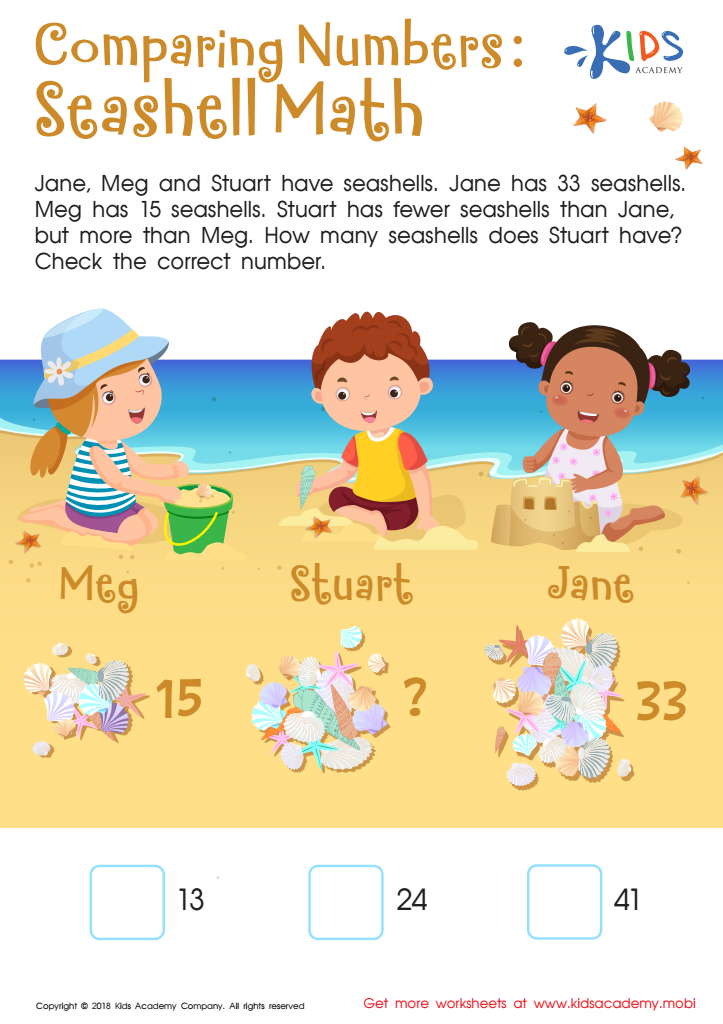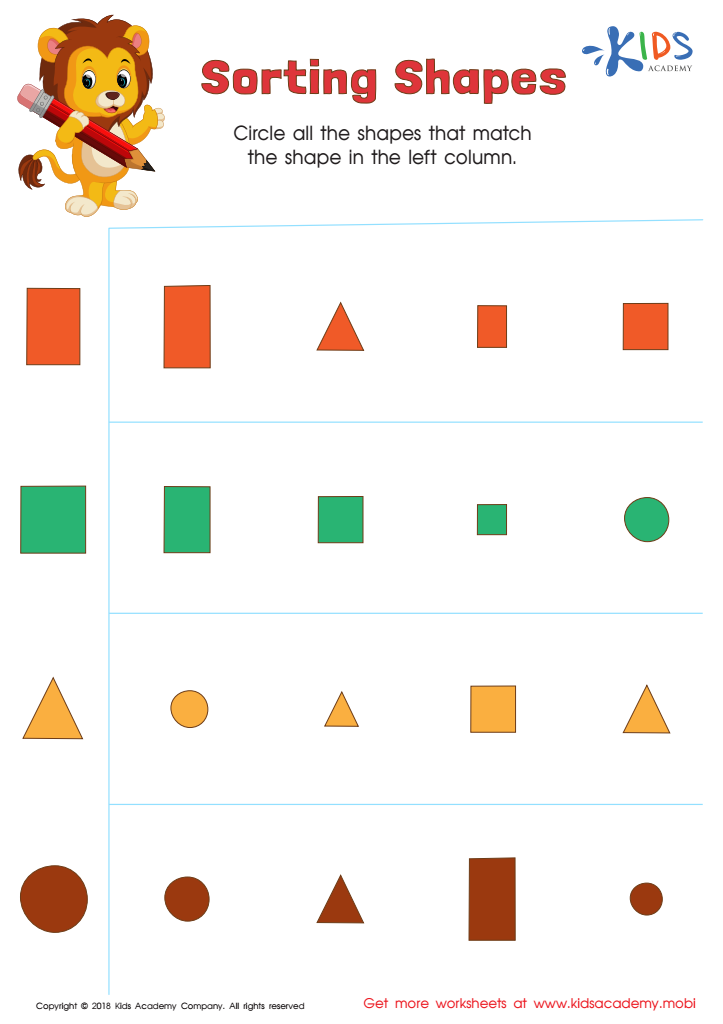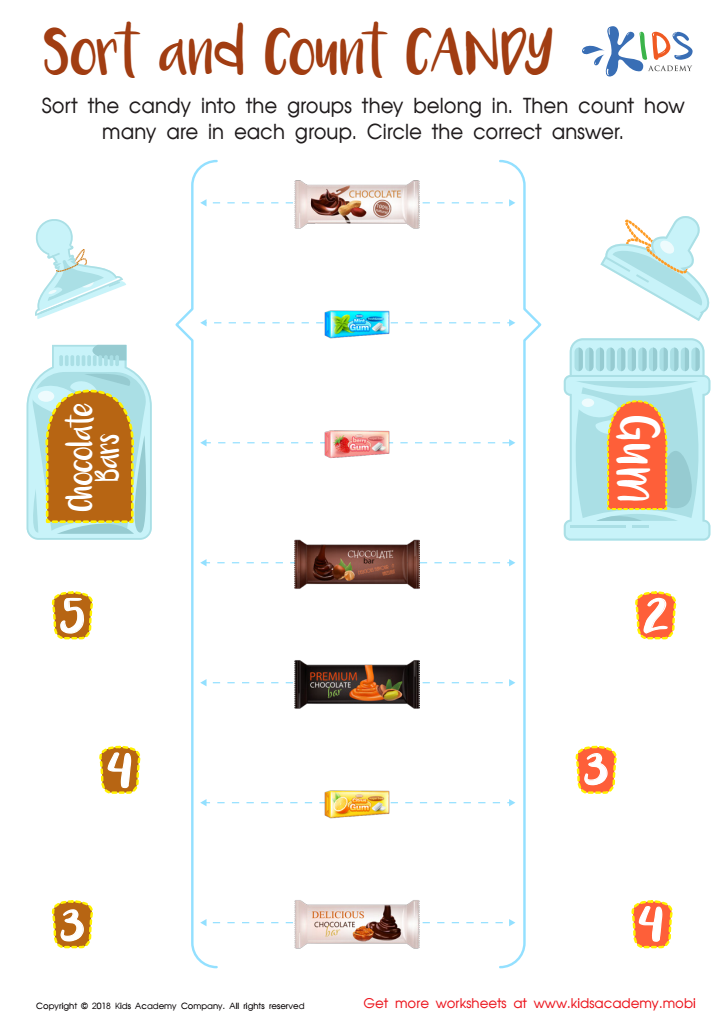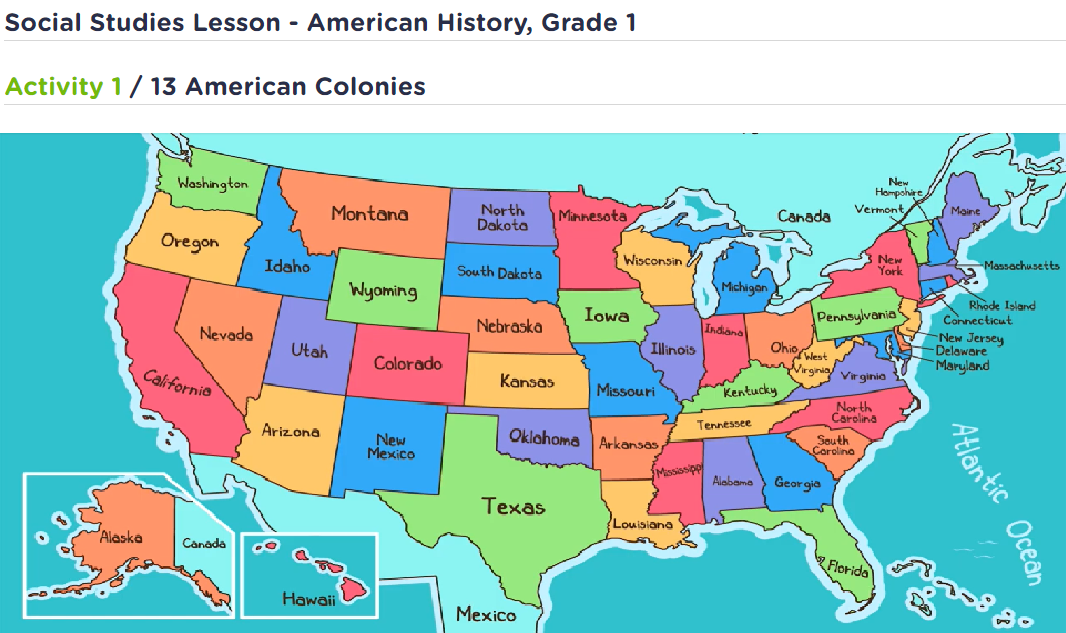Sorting abilities Normal Math Worksheets for Ages 5-8
3 filtered results
-
From - To
Empower young learners with our "Sorting Abilities Normal Math Worksheets for Ages 5-8." These engaging and educational worksheets focus on developing essential sorting skills, vital for early math success. Tailored for children aged 5-8, each activity encourages kids to identify, classify, and categorize objects based on various attributes like size, shape, color, and number. Through fun, interactive exercises, children enhance their critical thinking, logical reasoning, and problem-solving abilities. Perfect for home or classroom use, our worksheets make learning enjoyable and effective, providing a solid foundation for more advanced math concepts. Spark your child's sorting success with Kids Academy today!


Seashell Collectors Worksheet


Sorting Shapes - Part 2 Worksheet


Sort and Count Candy Worksheet
Sorting abilities are a crucial aspect of a child's cognitive and mathematical development, particularly for ages 5-8. During this formative period, children rapidly develop their understanding of the world around them through observation and categorization. Sorting activities enhance their ability to differentiate, compare, and classify objects based on various attributes such as color, shape, size, and quantity.
For parents and teachers, encouraging sorting activities lays the groundwork for more complex mathematical concepts. Sorting helps children develop critical thinking and problem-solving skills. It aligns with early math foundational skills like counting, recognizing patterns, and understanding one-to-one correspondence. For instance, when a child sorts blocks by color, they are not only practicing organization but are also engaging in early analytical thinking.
Furthermore, sorting helps improve language development. Describing sorting rules and explaining choices enhances vocabulary and sentence structure. It also aids in social development when children work together to group objects, fostering teamwork and communication skills.
Teachers and parents can encourage sorting through playful activities, such as using everyday items like toys, buttons, or snack pieces. By making sorting a regular part of a child’s learning routine, parents and teachers can ensure that children develop a strong foundation in math and cognitive skills, setting them up for future academic success.
 Assign to My Students
Assign to My Students





















